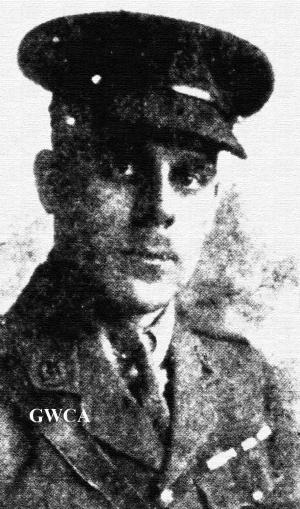BX December 28, 1915
The Transports Were Crowded After Landing – Roar of the Guns at Sulva Bay Was Heard Every Six Seconds – Dr. Hutton Tells of His Experience at Dardanelles – Sick Numbered as many as the Wounded – Dr. Hutton Worked with R.A.M.C. on Transports at Work at Gallipoli
After eight months spent in hospital transport work in the Dardanelles, Lieut. (Dr.) Robert Lyle Hutton has arrived home on three months sick furlough and is now stopping at the home of his brother-in-law, Alfred Ball, at 14 Sheridan Street. For the past eight weeks Dr. Hutton has been in the military hospital at Gibraltar and Guy’s Hospital, London, suffering from infection caught on board a shipload of wounded.
Eight months ago Dr. Hutton went over to England and was attached by the war office to the Royal Army Medical Corps and sent to the Dardanelles, where he was engaged on ships carrying wounded to the various seaport towns. Little of the real war was witnessed by Dr. Hutton, but a great deal of the after effects came his way.
The town of Lemnos was his headquarters for quite a bit of the time he was there. Here in the harbor he says, he has seen as many as 300 ships of every description at once. He was also at Imbros for some time. Here Sir Ian Hamilton had his station.
At times the transport ships were filled from top to bottom with wounded men. There were, according to the doctor, just as many men sick there as wounded and there was a great deal of infection. He was present when the landing was made at Sulva Bay early in August. He was within three miles of the Dardanelles and could plainly hear the roar of the cannon, every six seconds by the watch, and watched the clouds of shrapnel shells rise in the air. It was following this landing that the transport ship was packed with wounded men. The majority of the wounded were taken to Alexandria and other seaport towns, but some were taken as far inland as Cairo.
There are very few Canadian soldiers there, most of the troops being Australian and English. The Australian men, the doctor describes as fine specimens, big stout fellows, all of them. He saw quite a bit of the country and has profited considerably by his trip. He was much impressed with the delta of the Nile, where no fertilizer is needed for farming.
In regard to Red Cross work in Egypt, Dr. Hutton says that all red tape was dispensed with and that anything wanted could be had in a few hours, even to such out-of-the-way things as walking sticks. The Red Cross was doing good work over there, he says. Dr. Hutton has been ordered to return to Egypt after his furlough is up a month of which he will spend in Brantford.
BX January 31, 1950
Dr. R.L. Hutton Passed Away Suddenly at Home
Dr. Robert Lyle Hutton, one of Brantford’s best-known physicians and surgeons, died suddenly Monday night at his home, 50 King Street. He had practiced medicine and surgery here from 1919 until a short time ago. He was 70 years of age.
Born at Toronto, March 23, 1880, Dr. Hutton attended Albert College, Belleville, Queen’s University, Kingston, and later the University of Toronto, from which he received his M.D. degree in 1906 to 1914. He took a post-graduate course at Edinburgh University in 1918 and became a Fellow of the Royal College of Physicians and Surgeons. In November 1944, he was made a specialist in general surgery, Royal College of Physicians and Surgeons of Canada.
During the Frist World War, he was a captain in the Royal Army Medical Corps from 1915 to 1918, serving in Gallipoli and the Mediterranean area.
After the war he started practice in Brantford and became active in community affairs here. He was for many years a coroner and also chief surgeon of the Massey-Harris Company. Dr. Hutton was a former president of the Brant County Medical Society, a medical officer of the Department of Veterans’ Affairs, since 1919, a member of Colborne Street United Church, Brant Lodge, A.F. and A.M., and the Brantford Shriners Club.
Possessed of a genial personality and an understanding heart, he had a host of friends here and throughout the medical profession who will sincerely regret his passing.
Surviving besides his widow, the former Mary Iona Ball of this city, whom he married in 1907 are two daughters, Mrs. Roy (Margaret) Edwards, Brantford, and Mrs. Lawrence (Florence) White, Toronto; one son, Dr. A. Lyle Hutton, city; two brothers, Herbert V. and Dr. William L. Hutton, city and one sister, Mrs. Harry Smith, Winnipeg.
Dr. Hutton is resting at Thorpe Brothers’ Funeral Home, where the funeral service will be conducted on Thursday afternoon. Interment will be in Farringdon Burial Ground.

